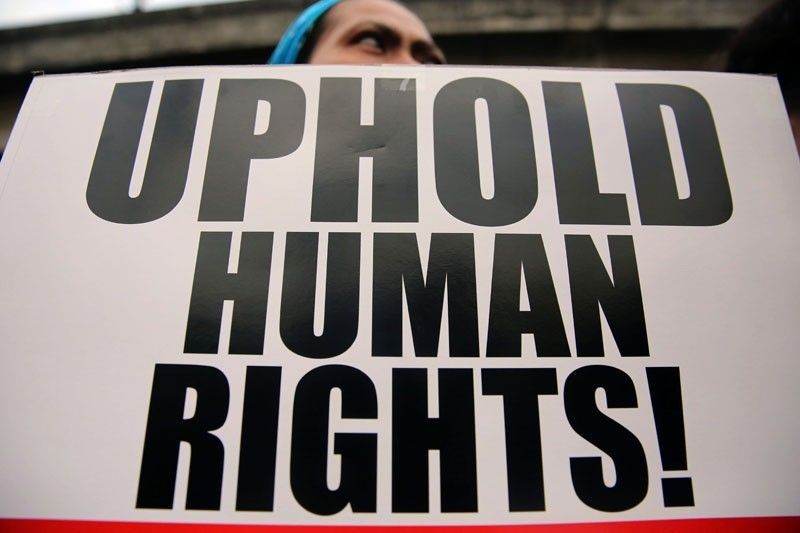Commentary: Why business should make human rights a priority

The world celebrated Human Rights Day on December 10. This was the day in 1948 when the United Nations General Assembly adopted the Universal Declaration of Human Rights, the document that has given content to key human rights treaties, cumulatively known as the International Bill of Human Rights.
To commemorate the event, the Stratbase ADR Institute hosted a webinar entitled “Rule of Law in Times of Crisis: Combating Corruption’s Economic Impact and Championing Human Rights in the Face of COVID-19”. The webinar explored the interlinked reality of corruption, inequality, and human rights violations in the Philippines, magnified by the COVID-19 pandemic.
The state’s primary obligation to protect human rights under international law was highlighted. At the same time, the pandemic underscored the need for a whole-of-society response, prodding civil society and the general public to be vigilant in holding public officials accountable.
Business and human rights
The pandemic has exposed the same urgency for companies to respect human rights in doing business. International law has recognized the responsibility of non-state actors in upholding human rights.
One example can be found in international humanitarian law. Parties to an armed conflict – including a non-state armed group – must observe certain obligations in conducting hostilities and protect persons who take no active part in combat. Another example is the prosecution of individual persons at the International Criminal Court for genocide or crimes against humanity.
These examples show that the current international legal order is not purely statist in treating human rights accountability.
Companies are no exception. One important international legal framework that has yet to gain the traction it deserves in the Philippines is the UN Guiding Principles on Business and Human Rights (UNGPs). The UNGPs prescribe a set of guidelines for states and companies to prevent human rights risks and address them when they occur.
They do not impose binding obligations on corporations and do not result in legal liability. Then-Special Rep. to the UN Secretary General John Ruggie, author of the UNGPs, capitalized on companies’ “social license to operate” to regulate corporate behavior, using human rights law as a source of normative content rather than of legal obligation.
Some of the measures called for by the UNGPs overlap with protections provided under Philippine law. Nonetheless, the UNGPs significantly provide a global standard of expected conduct for all companies wherever they operate. It provides a uniform conceptual template that puts human rights at the front and center of business operations. In 2011, the UN Human Rights Council unanimously endorsed the UNGPs.
Protect-Respect-Remedy
Under the UNGPs, states have the duty to protect human rights; companies have the responsibility to respect human rights; and both actors must respectively provide state-based and non-state-based grievance mechanisms to address adverse human rights impact to victims and provide remedy.
The corporate responsibility to respect human rights means that business enterprises should act with due diligence to avoid infringing on the rights of others. They should also address adverse human rights impacts with which they are involved.
Companies create adverse human rights impact in various ways– causing or contributing to the impact, or being directly linked to the impact through its product, operations or service. The UNGPs refer to the gamut of human rights under international law, including workers’ rights and the right to health, both crucial in the face of COVID-19.
One way that companies can prevent adverse human rights impact to rights holders is to conduct continuing human rights due diligence. Though the name sounds familiar to corporate lawyers, human rights due diligence varies from its commercial law counterpart.
Human rights due diligence helps companies identify and assess human rights risks to people – not the company – affected by business operations. Depending on the type of business, human rights impact includes risks to workers throughout the supply chain, the environment, indigenous and local communities, and even social media users.
When companies cause or contribute, or their products, operations or services are directly linked to adverse human rights impact, they must have in place a grievance mechanism where affected rights holders can access remedy.
State of play
The UNGPs are soft law. They go beyond corporate social responsibility initiatives and are definitely not philanthropy. In the European Union, plans for corporate regulators to impose mandatory human rights and environmental due diligence on companies are being considered.
This would ensure that companies registered in EU member-states are not contributing to human rights abuses in their operations and supply chains, there and elsewhere. In contrast, the Philippines has yet to develop a national action plan that would implement the soft-law UNGPs.
The past year has exposed the state’s incapacity to respond effectively to crises – whether a global pandemic or the regular typhoon. The interlinked reality of corruption, widespread inequality, and worsening human rights situation in the face of COVID-19 calls for a holistic rather than fragmented approach.
This requires first and foremost strong democratic state institutions; yet it also needs the commitment of business enterprises operating in the Philippines to respect the human rights of ordinary Filipinos.
Beyond Human Rights Day, we must recognize the various state and non-state actors in society that affect the promotion of human rights. Differentiated power entails differentiated responsibilities that must be all equally held accountable. The new normal requires nothing less.
Jenny Domino is a non-resident fellow for Democracy and Human Rights of think tank Stratbase ADR Institute.
- Latest
























